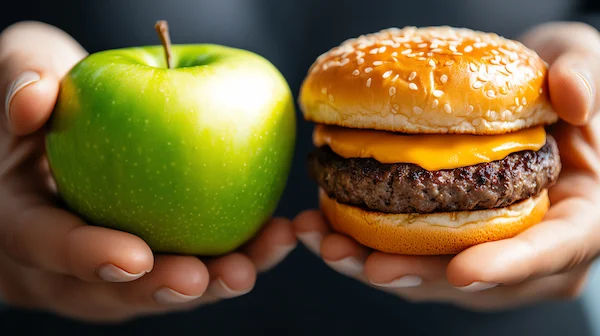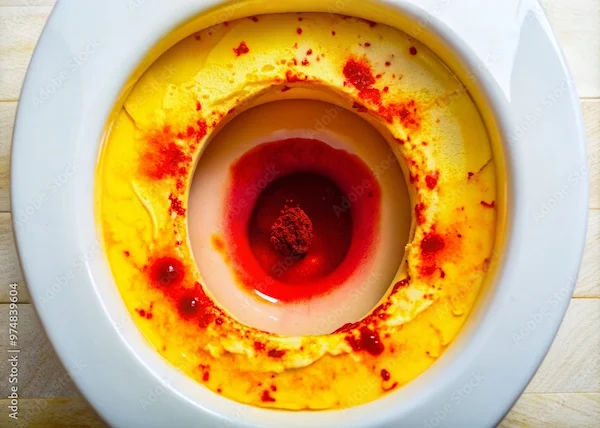Brown Rice and Its Effects on Diabetes
Discover how brown rice affects blood sugar, its benefits for diabetes management, and tips for healthy portion control. Learn why it’s a better choice than white rice for diabetics.

Written by Dr. J T Hema Pratima
Reviewed by Dr. Mohammed Kamran MBBS, FIDM
Last updated on 21st Aug, 2025

Introduction
If you or a loved one has diabetes, you know how important it is to make the right food choices. One such healthy option is brown rice, a whole grain that can be a great addition to a diabetic-friendly diet. But how exactly does brown rice affect blood sugar levels? Is it better than white rice? Let’s explore these questions in a simple and easy-to-understand way.
What is Brown Rice?
Brown rice is a whole grain that retains its bran, germ, and endosperm, unlike white rice, which is stripped of its nutritious outer layers during processing. This means brown rice is richer in fiber, vitamins, and minerals, making it a healthier choice—especially for people with diabetes.
How Does Brown Rice Affect Diabetes?
1. Lower Glycemic Index (GI)
The Glycemic Index (GI) measures how quickly a food raises blood sugar levels. Foods with a high GI (like white rice) cause rapid spikes, while low-GI foods (like brown rice) release sugar slowly.
Brown rice GI: ~50-55 (low to medium)
White rice GI: ~70-80 (high)
Because brown rice digests more slowly, it helps maintain stable blood sugar levels, reducing the risk of sudden spikes.
2. High Fiber Content
Brown rice is packed with dietary fiber, which:
Slows down carbohydrate digestion
Keeps you full for longer
Helps control blood sugar and weight
A high-fiber diet is especially beneficial for type 2 diabetes as it improves insulin sensitivity.
3. Rich in Essential Nutrients
Brown rice contains:
Magnesium – Helps regulate blood sugar and insulin function
B vitamins – Supports energy metabolism
Antioxidants – Reduces inflammation linked to diabetes
Can Diabetics Eat Brown Rice Daily?
Yes, but in moderation. While brown rice is healthier than white rice, it still contains carbohydrates. The key is portion control:
Recommended serving size: ½ to 1 cup , or lean meat) to slow sugar absorption
Brown Rice vs. White Rice for Diabetes
Feature
Brown Rice
White Rice
Fibre
High
Low
Nutrients
Rich
Low
GI
Low (55)
High (75)
Blood Sugar Impact
Slow Rise
Rapid spike
For diabetics, brown rice is the better choice because it helps manage blood sugar levels more effectively.
Tips for Including Brown Rice in a Diabetic Diet
1. Control Portions – Stick to small servings (½ 1 cup per meal).
2. Combine with Protein & Fiber – Eat with dal, vegetables, or grilled chicken to balance blood sugar.
3. Avoid Overcooking – Slightly undercooked rice has a lower GI.
4. Try Other Whole Grains – Quinoa, barley, and millets are also great alternatives.
5. Monitor Blood Sugar – Check how your body responds after eating brown rice.
Health topic carousel:
Doctor's speciality: Dietician
Text: Consult an Dietician for the best advice
Potential Concerns with Brown Rice
Arsenic Content – Brown rice may contain slightly more arsenic than white rice. To reduce risk:
Rinse rice thoroughly before cooking.
Cook in excess water and drain it.
Rotate with other grains like quinoa or millets.
Digestive Issues – Some people may experience bloating due to high fiber. Start with small portions and increase gradually.
When to Consult a Doctor?
If you have diabetes, it’s always best to consult a diabetes specialist or dietitian before making major dietary changes. They can help create a meal plan tailored to your needs.
Need expert advice?
You can easily book a consultation with a diabetes specialist on Apollo 24|7 for personalized guidance.
Final Thoughts
Brown rice is a nutrient-rich, fiber-packed, and low-GI alternative to white rice, making it a smart choice for diabetics. While it doesn’t cure diabetes, it helps manage blood sugar levels better when eaten in controlled portions.
Remember, a balanced diet, regular exercise, and proper medication are key to diabetes management. If you’re unsure about dietary changes, always consult a healthcare professional.
Health topic carousel:
Doctor's speciality: Dietician
Text: Consult an Dietician for the best advice




